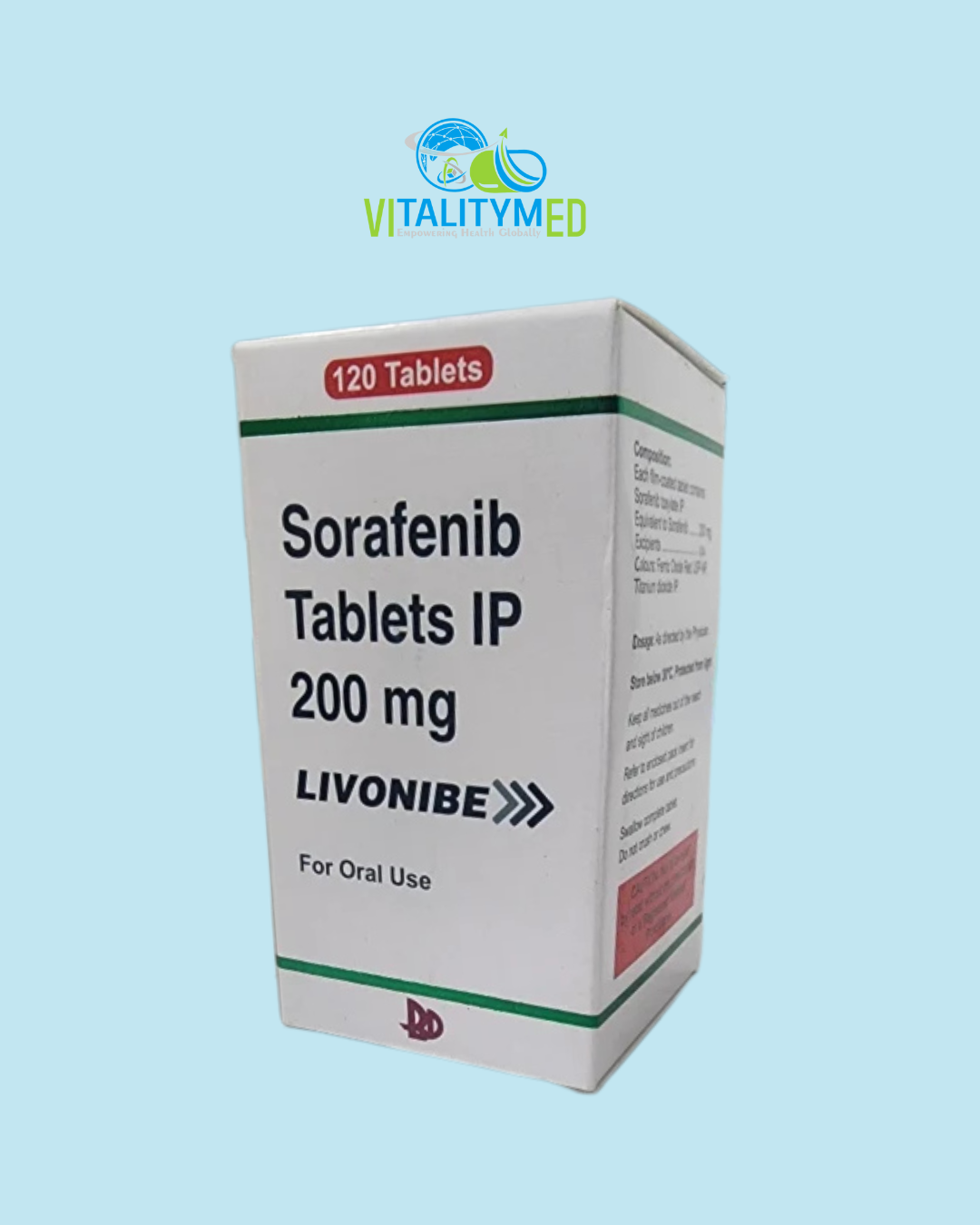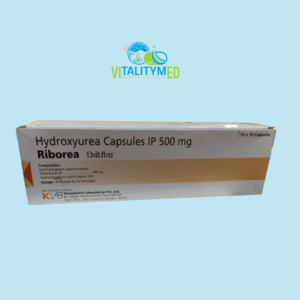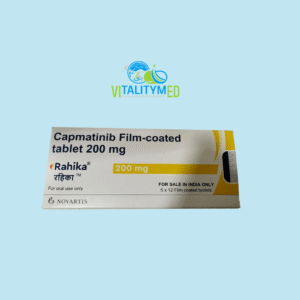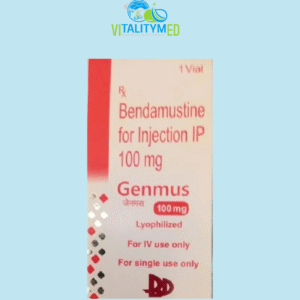Livonibe 200 mg contains Sorafenib, a multikinase inhibitor used as an oral targeted therapy for certain advanced cancers.
It is mainly prescribed for liver, kidney, and thyroid cancers, providing a way to slow tumour growth and disease progression when surgery or curative treatments aren’t possible.
Available as a convenient oral tablet, Livonibe allows patients to continue cancer treatment at home, under careful monitoring by their oncology team.
Mechanism of Action
Sorafenib is a tyrosine kinase inhibitor (TKI) that works on multiple fronts:
-
It inhibits tumour cell proliferation by blocking RAF kinases (important in the RAF/MEK/ERK signalling pathway that drives cell growth).
-
Simultaneously, it inhibits angiogenesis (formation of new blood vessels that feed tumours) by targeting VEGFR-2, VEGFR-3, and PDGFR-β on endothelial cells.
This dual action—cutting off the tumour’s blood supply and directly halting cancer cell growth—helps slow the spread and progression of the disease.
Uses / Indications
Livonibe is indicated for the treatment of:
-
Advanced hepatocellular carcinoma (HCC), the most common type of liver cancer.
-
Advanced renal cell carcinoma (RCC), a type of kidney cancer, especially after failure of other therapies.
-
Differentiated thyroid carcinoma (DTC) that is refractory to radioactive iodine therapy, meaning it no longer responds to usual iodine-based treatments.
It is generally used when the cancer is advanced or metastatic (has spread to other parts of the body) and cannot be surgically removed.
Adverse Effects
Like many targeted therapies, sorafenib comes with side effects that vary in intensity. Most can be managed with dose adjustments or supportive care.
Common side effects include:
-
Hand-foot skin reaction (palmar-plantar erythrodysesthesia): redness, swelling, or pain on palms and soles.
-
Diarrhoea, nausea, loss of appetite, and weight loss.
-
Fatigue or weakness.
-
Rash, dry skin, or hair thinning.
-
Mild hypertension (increased blood pressure).






